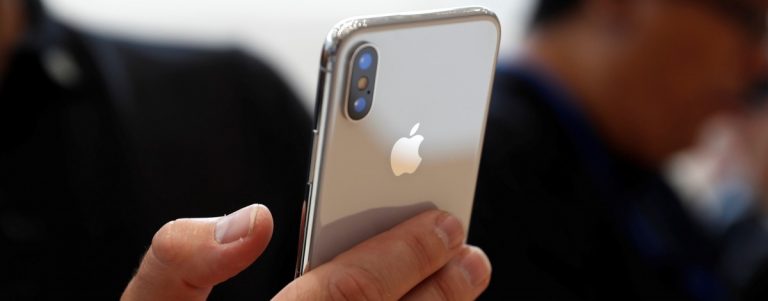This website uses cookies so that we can provide you with the best user experience possible. Cookie information is stored in your browser and performs functions such as recognising you when you return to our website and helping our team to understand which sections of the website you find most interesting and useful.

Apple unveiled three new flagship phones yesterday: iPhone 8, iPhone 8 Plus and iPhone X.
The iPhone 8 and iPhone 8 Plus boasts moderate hardware upgrades from their iPhone 7 predecessors, while the iPhone X is pretty much the same, plus a few more sensors and a large, higher-definition screen.
iPhone 8 and iPhone 8 Plus retail at GBP699 (US$930.30) and GBP799 (US$1,063.40) respectively, but iPhone X starts selling from a whopping GBP999 (US$1,329.70) – the most expensive ever for a new iPhone model.

Checking out the phones at the launch event. Source: Reuters/Stephen Lam
The announcement of the premium models come amid a time where students are reported to struggle to even buy food, books and pay for transport.
In a research by the National Union of Students (NUS) Extra, student finances are found to be in “desperate” shape.
Close to half of Britain’s students say they are concerned about only having an average weekly food spend of GBP24.32 (US$31.32) and having to bear travel costs of GBP17.35 (US$23.09) a week, according to the online survey of nearly 2,000 students, The Guardian reported.
broke + college student = no iPhone X
— i v á n (@ivanreyesmx) September 12, 2017
Using these figures by NUS Extra and the 2017 National Student Money Survey, buying an iPhone (the 64G model at £999) would mean students would have to forgo:
- 41.1 weeks of food (based on an average weekly food spend of GBP24.32)
- 57.6 weeks of travel (based on an average weekly spend of GBP17.35)
- 2.53 months of rent (based on an average rent of GBP394 per month)
- 14.5 months of socialising (based on an average spend of GBP69 per month)
Graduates do not seem to be able to afford those premium phone models any better than students either. The South China Morning Post (SCMP) in June reported that fresh grads from China’s colleges and universities earn CNY4,000 (US$588) monthly on average, barely enough to buy the cheapest iPhone 7 model with 32GB capacity which costs CNY5,388 (US$792).
Liked this? Then you’ll love these…
The average American fresh grad’s pay can buy four iPhone 7, while the Chinese – none
UK: Students struggle to afford food, books and transport – NUS








